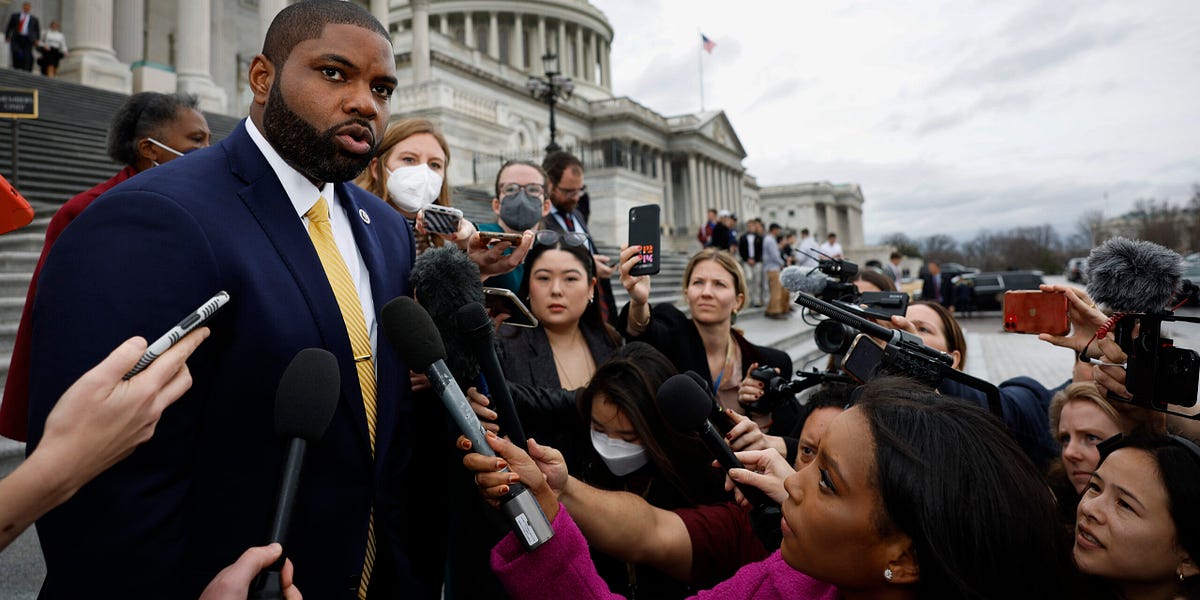This was a major moment—not just because it was the most contested speaker election since before the Civil War, but because for the first time in American history, each party had nominated a black American to be Speaker. (Hakeem Jeffries, who succeeded Nancy Pelosi as leader of the House Democratic Caucus, was his party’s unanimous choice in every round of the speakership balloting.) Donalds’s ethnicity was a point of pride for the anti-McCarthy contingent, with Republican Chip Roy accompanying his nomination of Donalds by noting its historic nature before quickly pivoting to point out race had nothing to do with it. His colleague Scott Perry offered a pedantic history lesson a few rounds later to help justify his support for Donalds, noting that the Republican party of the mid-eighteenth century was the party of Frederick Douglass and the nation’s first black congressional members.
Many House members on both sides of the aisle were left unimpressed—the most vocal of whom was Democratic Rep. Cori Bush, who took to Twitter to express her dissatisfaction with the Donalds nomination.

 www.thebulwark.com
www.thebulwark.com
Many House members on both sides of the aisle were left unimpressed—the most vocal of whom was Democratic Rep. Cori Bush, who took to Twitter to express her dissatisfaction with the Donalds nomination.

What the Cori Bush-Byron Donalds Clash Tells Us About Black American Politics
And about the complications of black solidarity.
